A houseguest’s shampoo bottle prompted an evaluation about just how “natural” The Body Shop’s products are in comparison to their branding and merchandising. You can read Part 1 of “Are You Being Duped by That “Natural” Beauty Brand?” HERE. 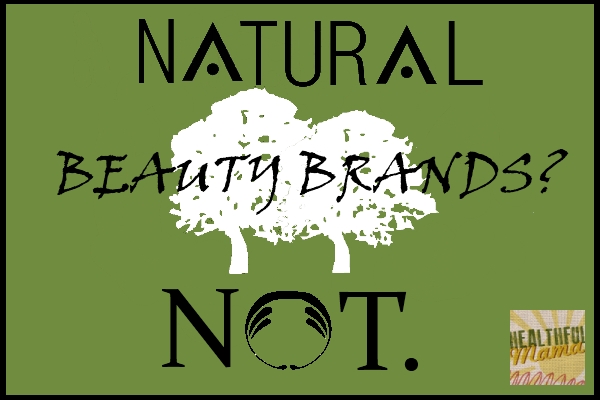
Let’s take a look at what the largest names in beauty are doing with “natural” products and cosmetics. (Note: some of these brands are doing wonderful work from an environmental standpoint, and I would never fault a company for trying to do good by the Earth. However, my focus on this blog is about health, so I am evaluating the ingredients of the products–not the businesses’ green practices.) The following are “natural” brands marketed under some of the Top Global Beauty Brands named by Forbes.
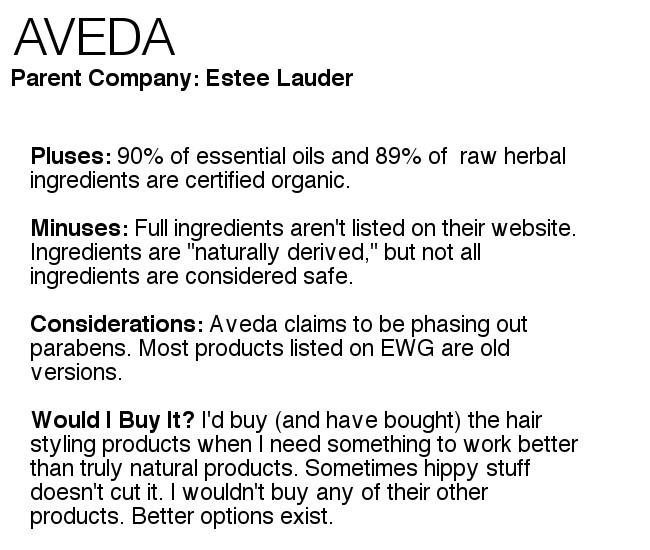
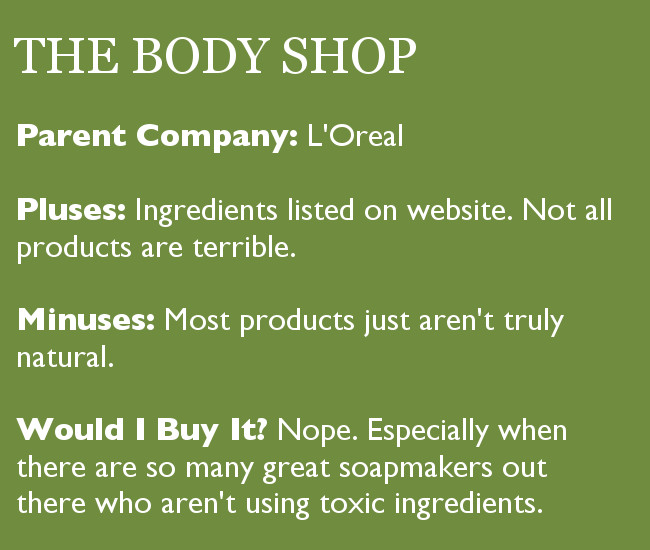
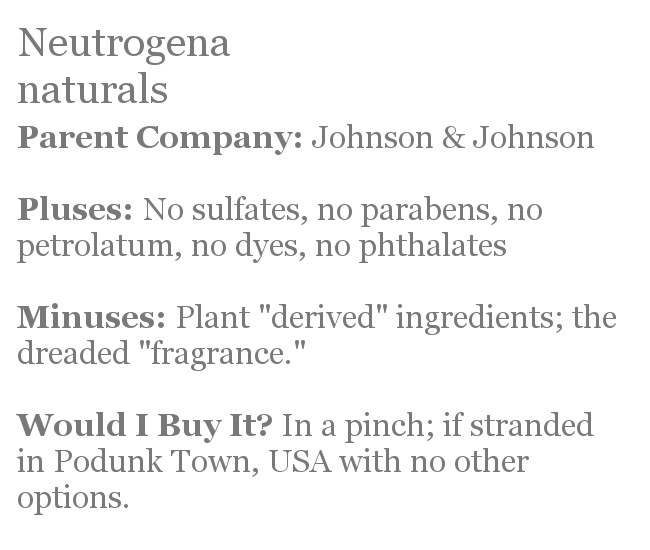
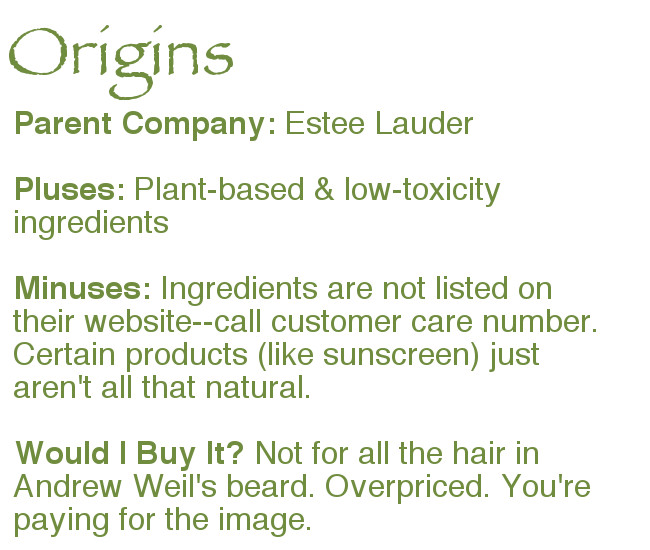
Let’s Get Specific
To view the EWG rankings of each of these companies, click the links below:
Aveda (only “old” products are listed)
Neutrogena (search for naturals products)
Of the four brands, Aveda and Origins (both Estée Lauder brands) do not include ingredients on their website. I find this to be a shady practice, as each brand focuses on specific ingredients (like the organic essential oils in Aveda products), but fail to tell the whole story. In fact, in order to obtain ingredients from either brand, one must call their customer-care telephone line, which is run by a consumer-care company, and not available 24/7. I suspect this tactic serves two purposes: 1) the brand may continue to market itself in a particular way without immediate question and 2) it allows the brand to appear to have an “exclusive formula” that they won’t divulge. In the end, transparency is key, in my mind, and I won’t support a company that isn’t willing to discuss its ingredients. Their EWG rating isn’t stellar.
The Body Shop, as I discussed in Part 1 of this series, is disappointing, showing no products that are as natural as the company would lead us to believe. Even a simple bar soap includes more than five ingredients. Why?!
The surprise brand in this little evaluation was Neutrogena naturals. After years of dealing with backlash about animal testing, the naturals line almost seems like a redemption for Neutrogena. Their clean website touts environmental efforts and exudes pride in a product that, at the very least, has removed some of the most toxic ingredients from its list. I am generally suspicious when a company jumps to tell you what’s NOT in their product, though (d’ya hear me, Arbonne fans?), and in this case, my suspicions were correct. Neutrogena naturals ingredients aren’t totally as pure as their image.
For tips on how to avoid being duped by marketing tactics, check out my first post in this series. Other ways of avoiding toxins in personal-care products are to find a small, independent (preferably local!) company who will tell you what’s in their products. Etsy has some great sellers, too. You could also make your own! Follow my Pinterest board dedicated to homemade personal care products. Not into concocting your own? Check out my list of favorite personal care products.
What are your thoughts? Are there any companies you’d like to discuss? I referred to this article in writing about Aveda.


Leave a Reply